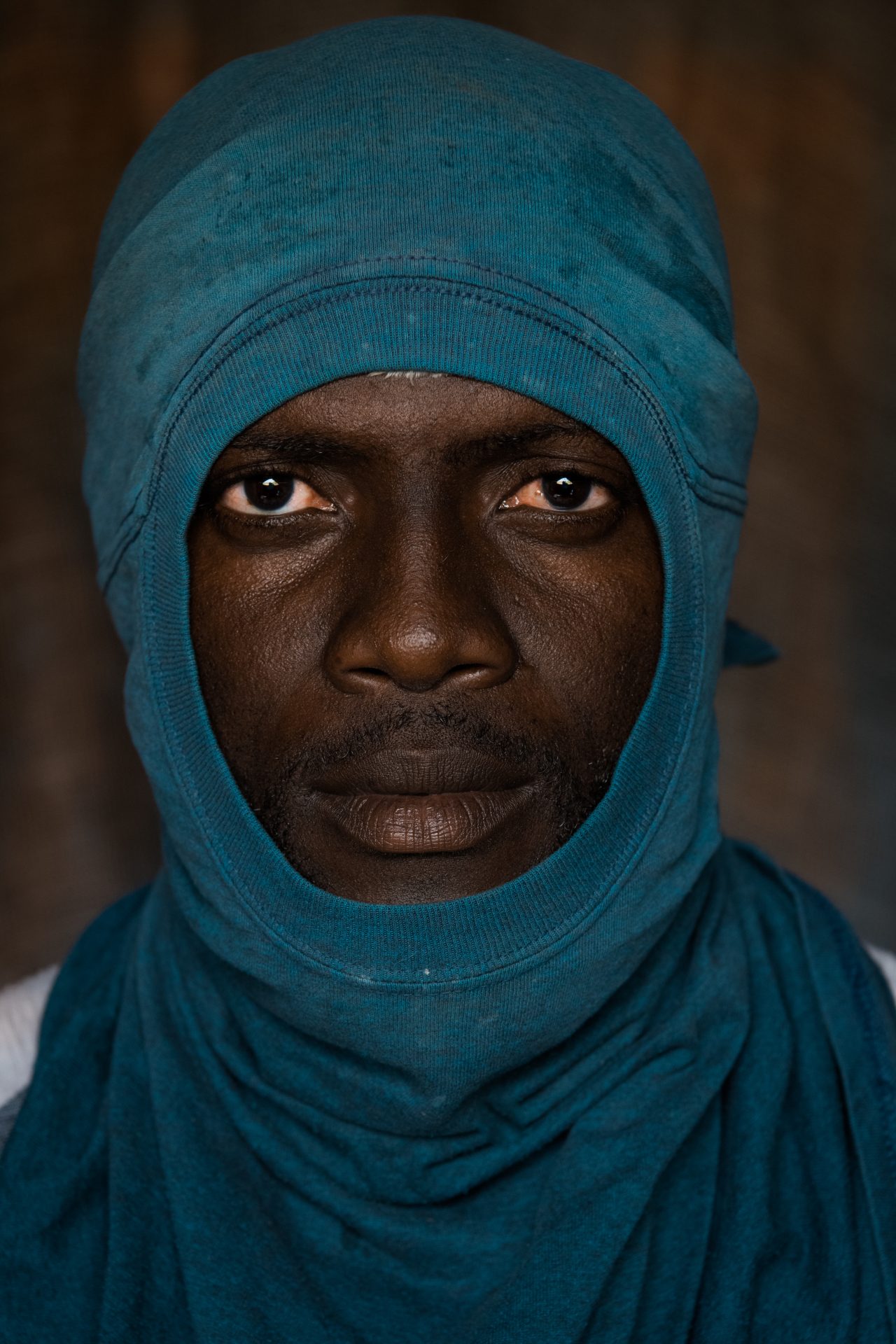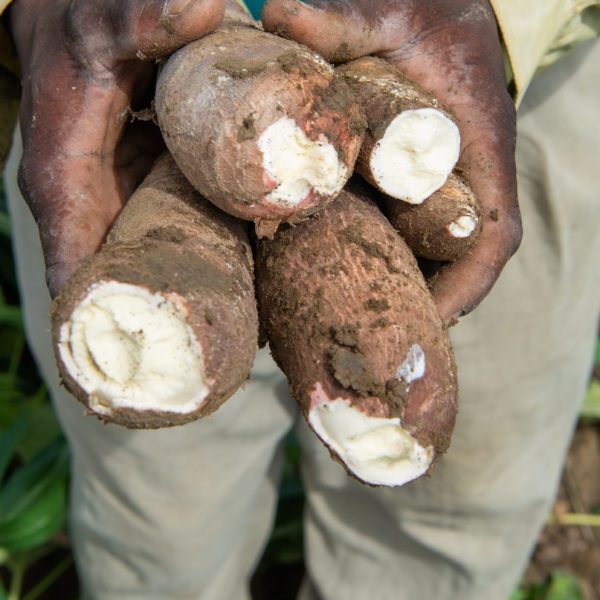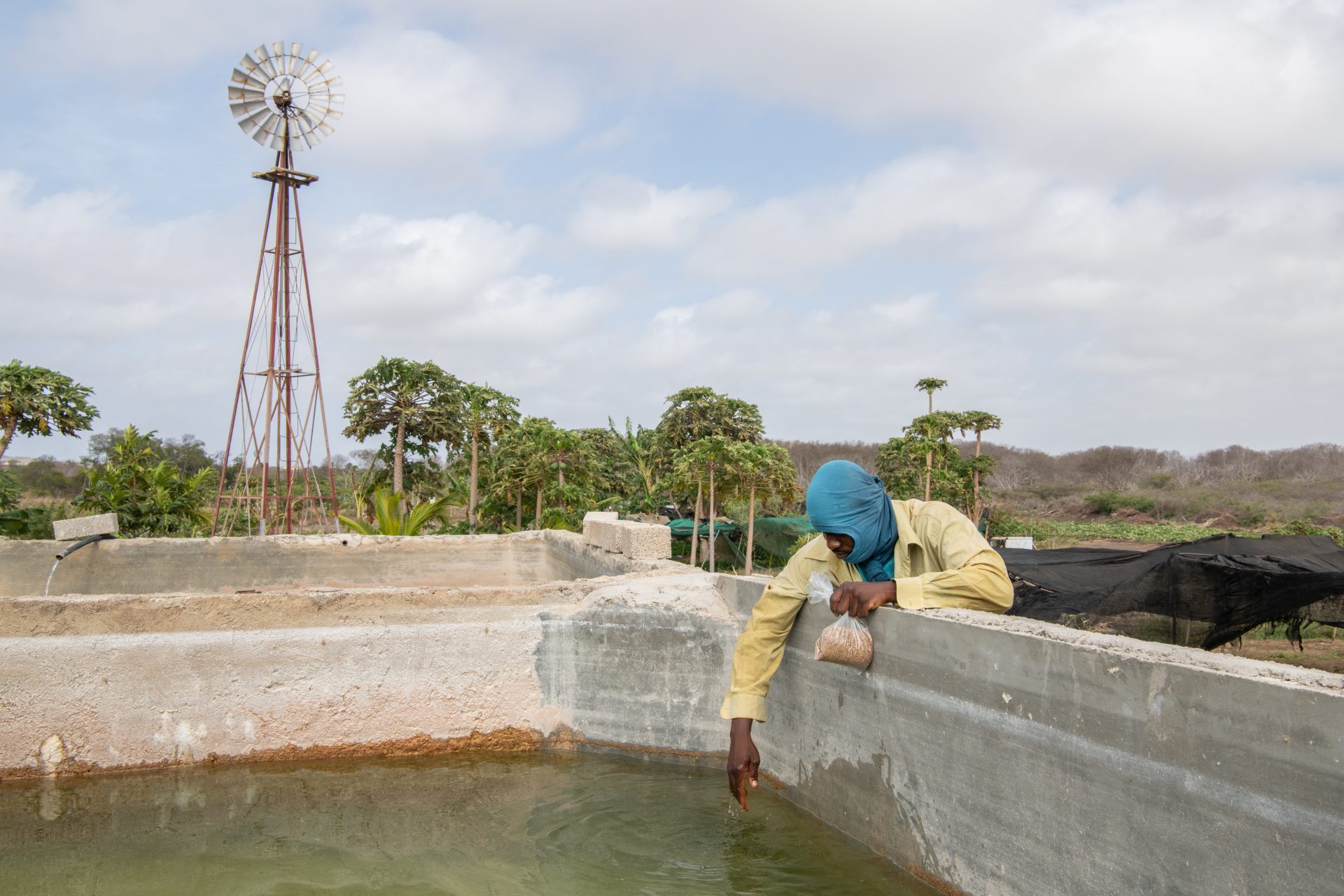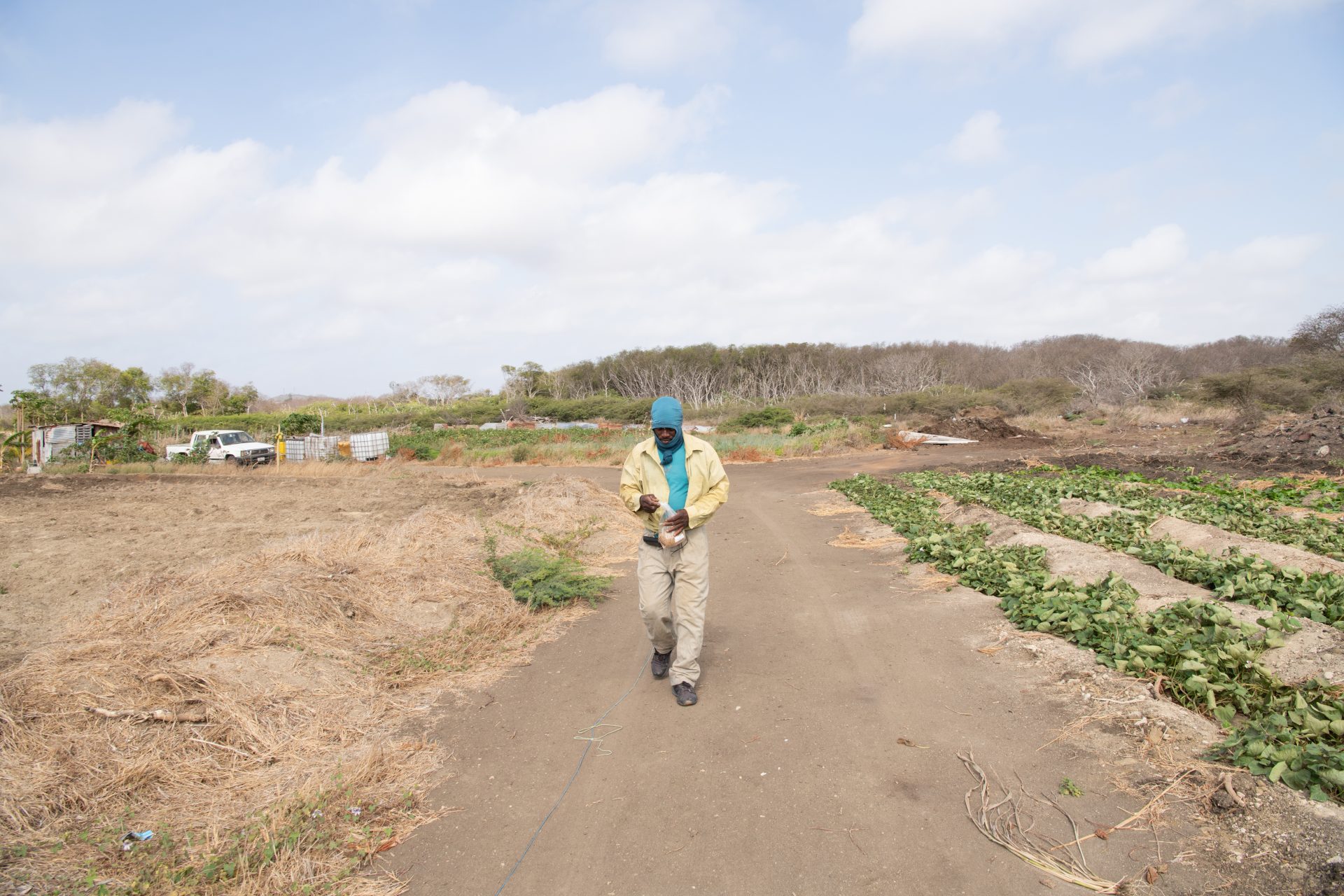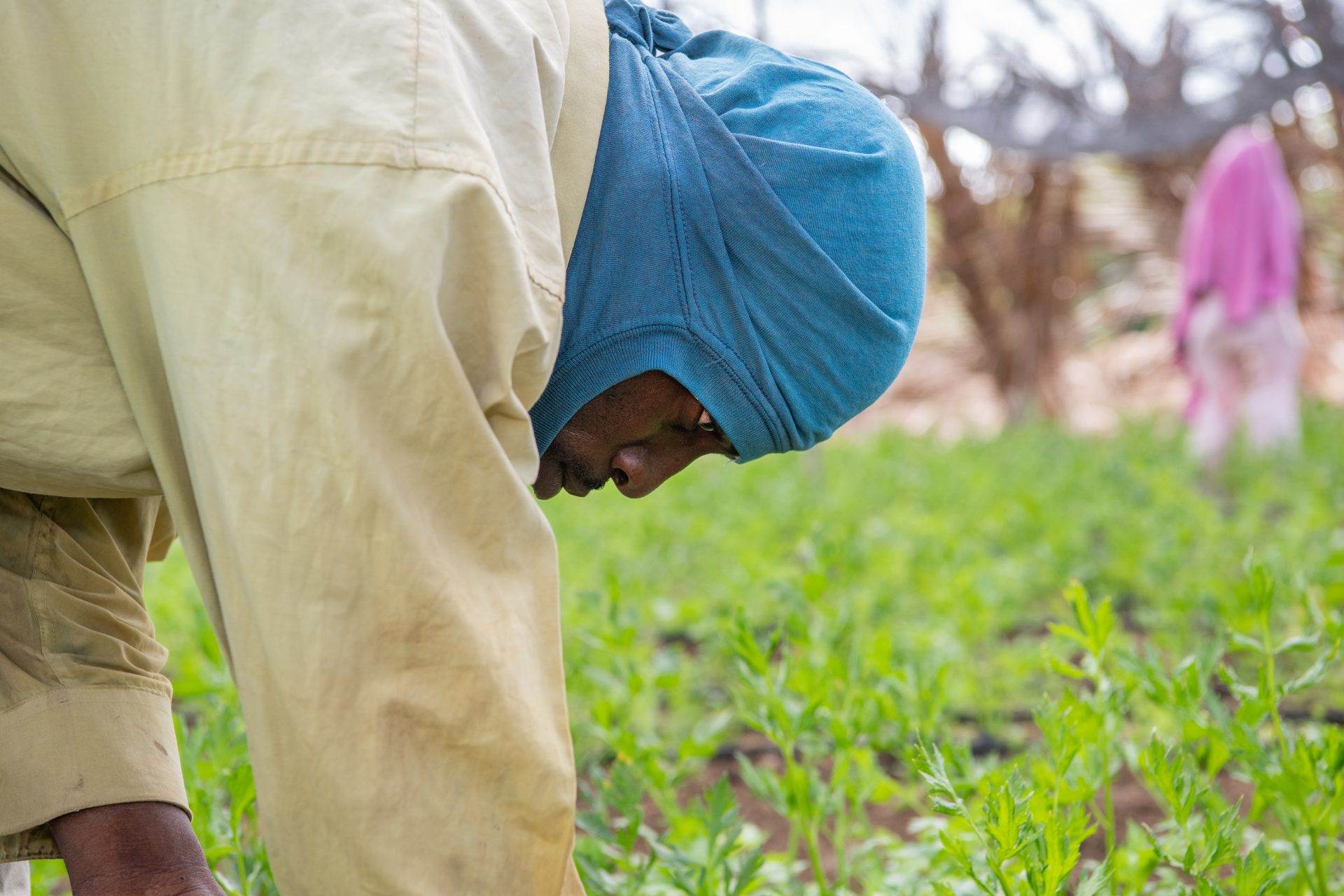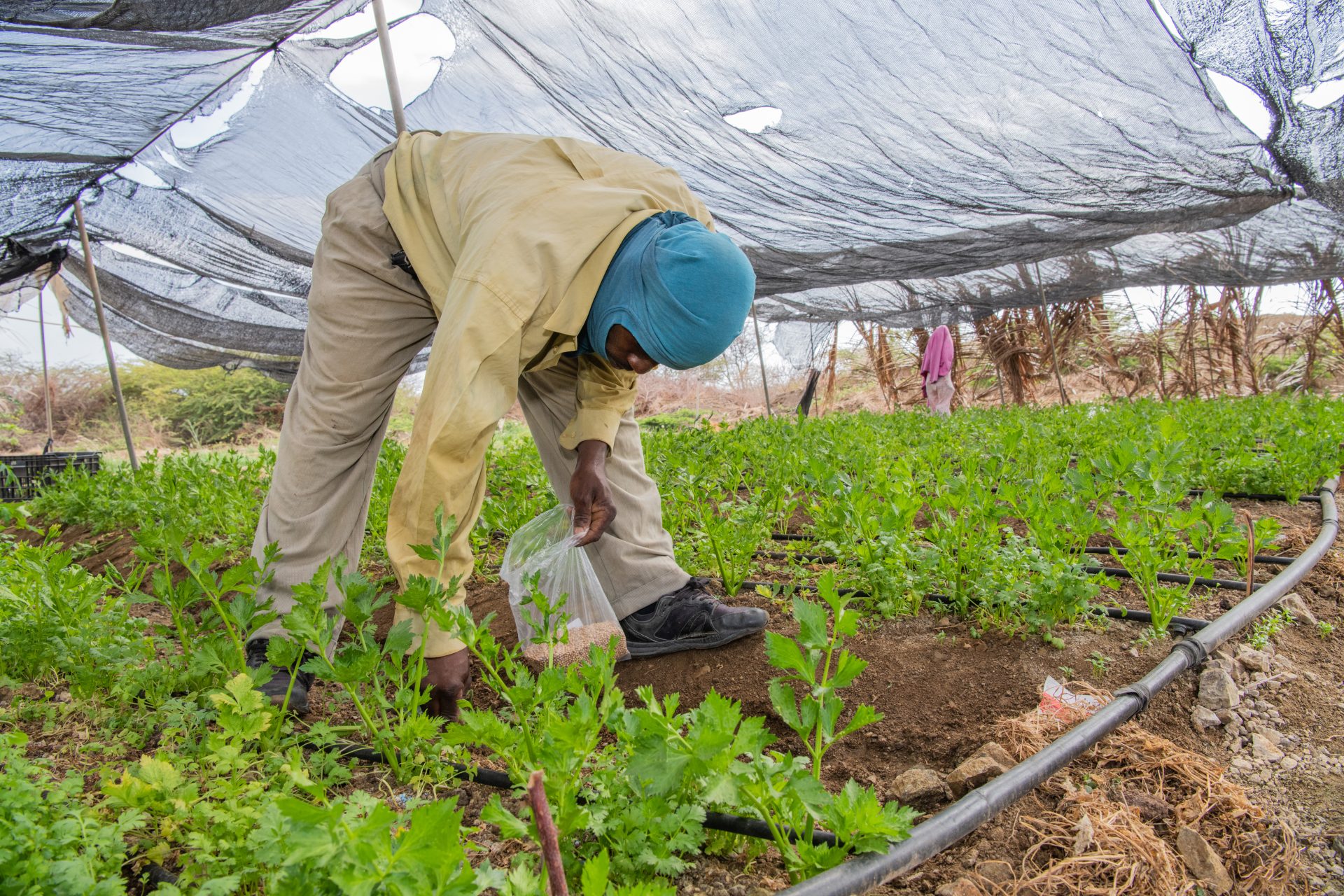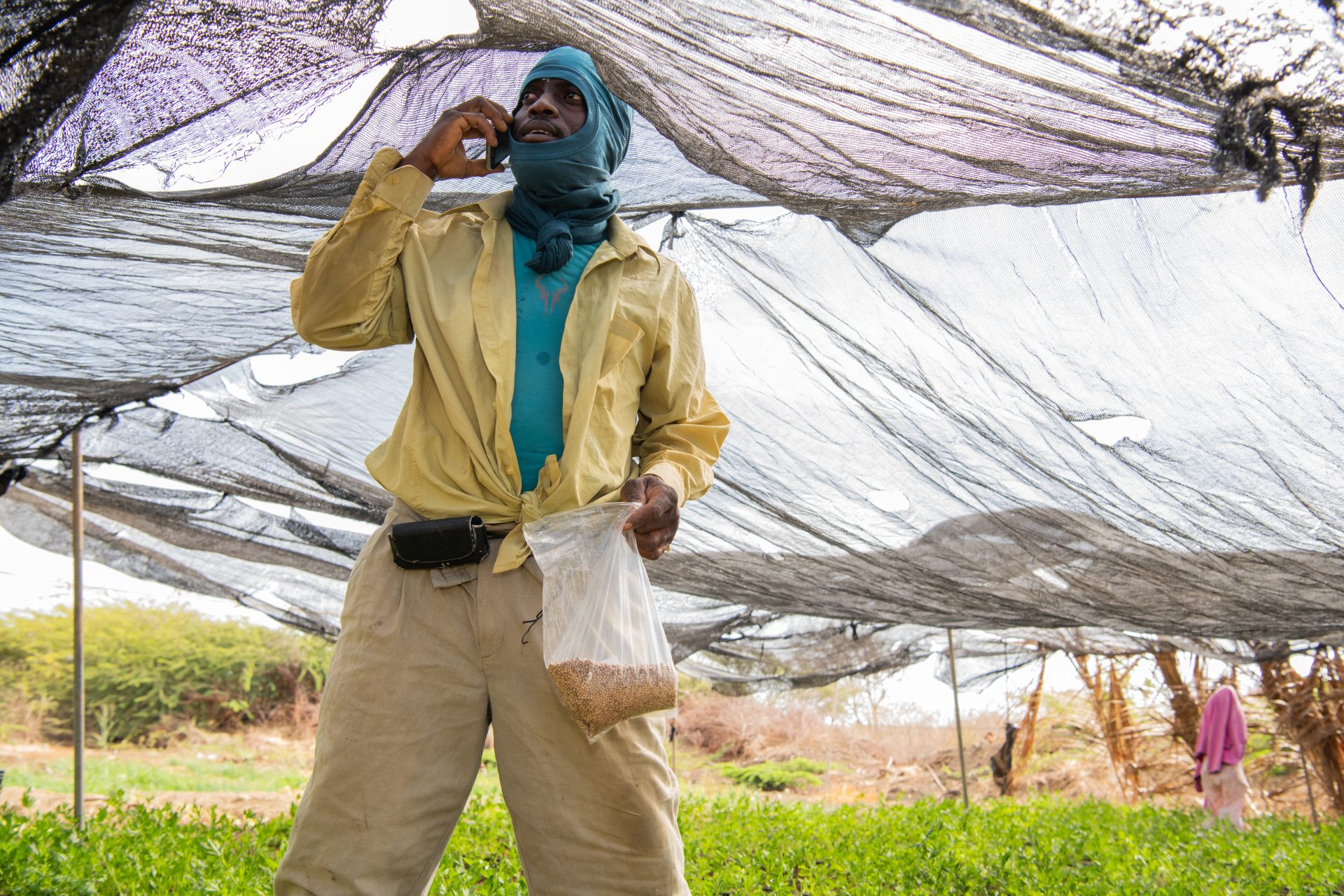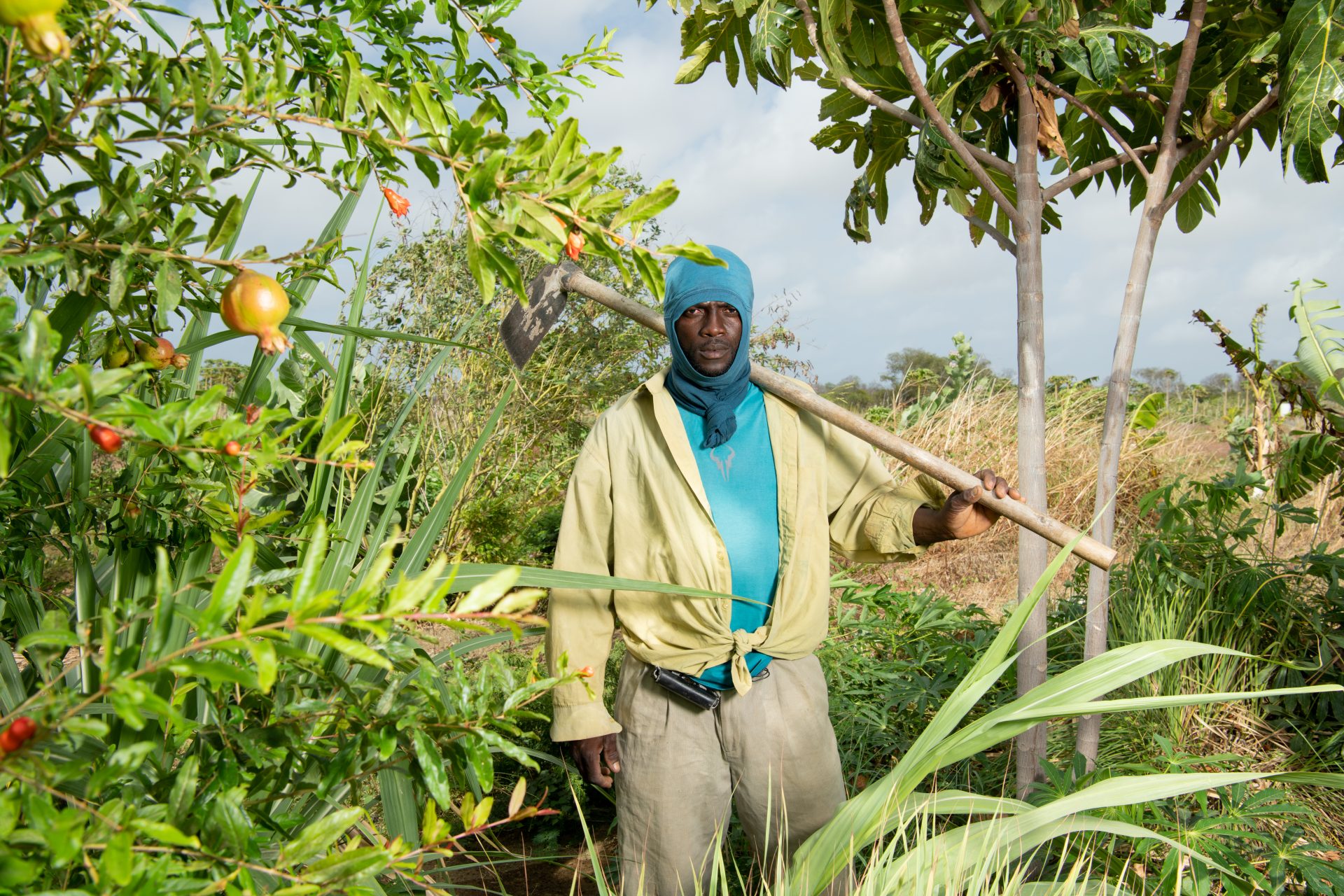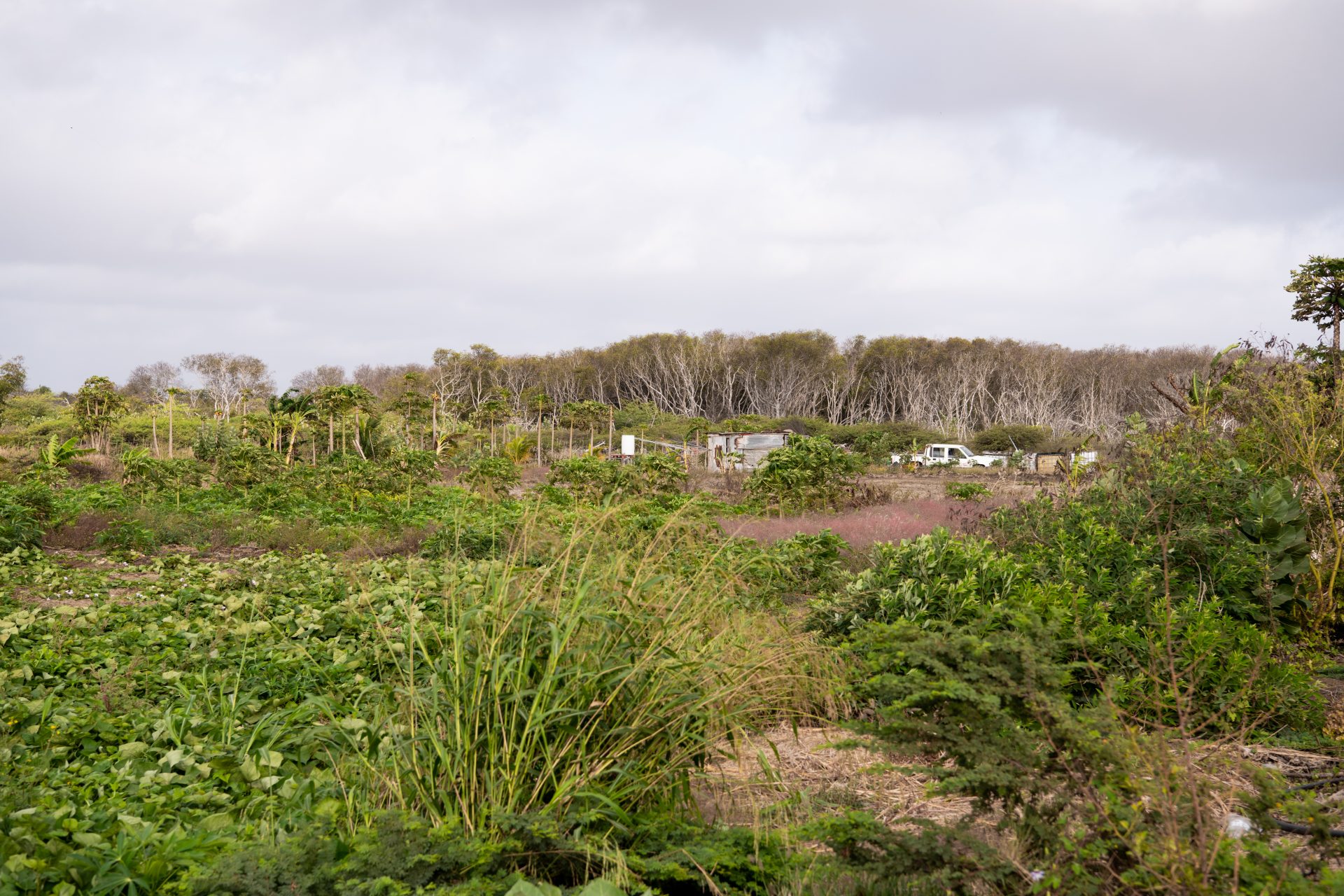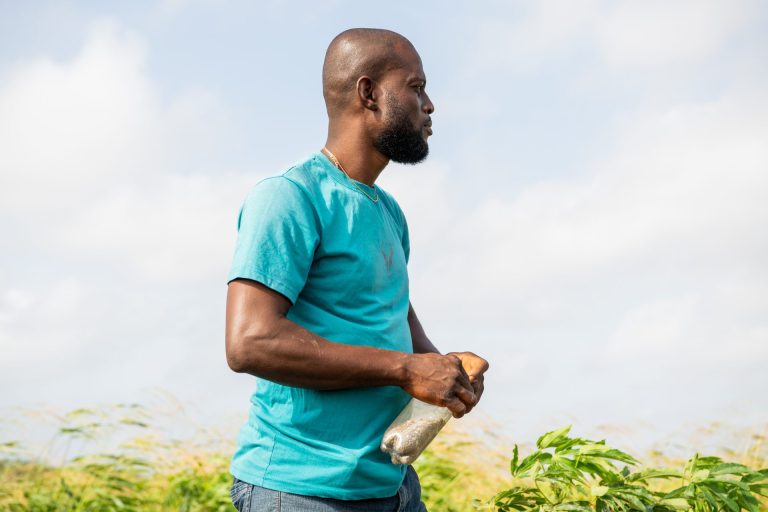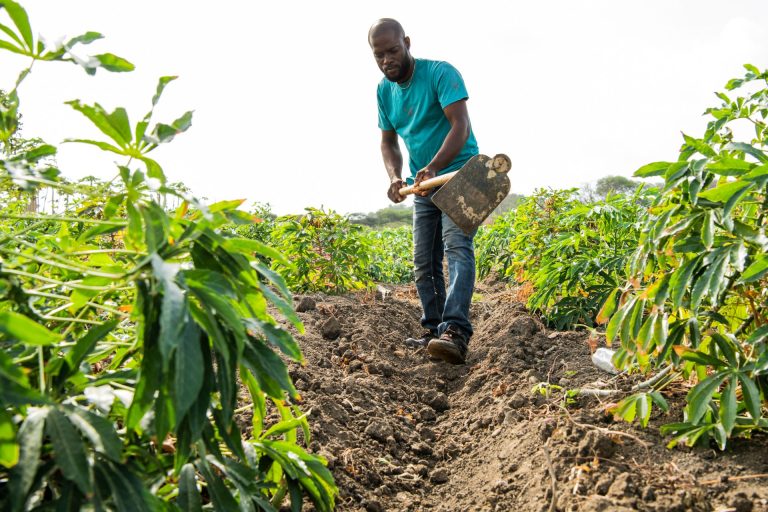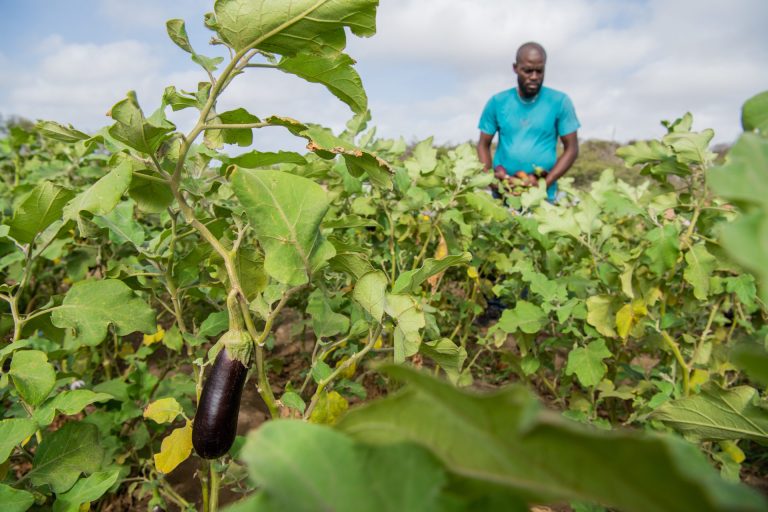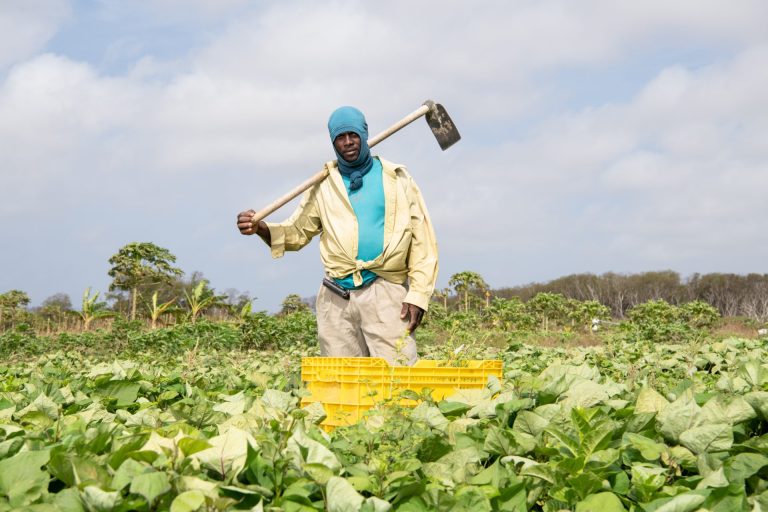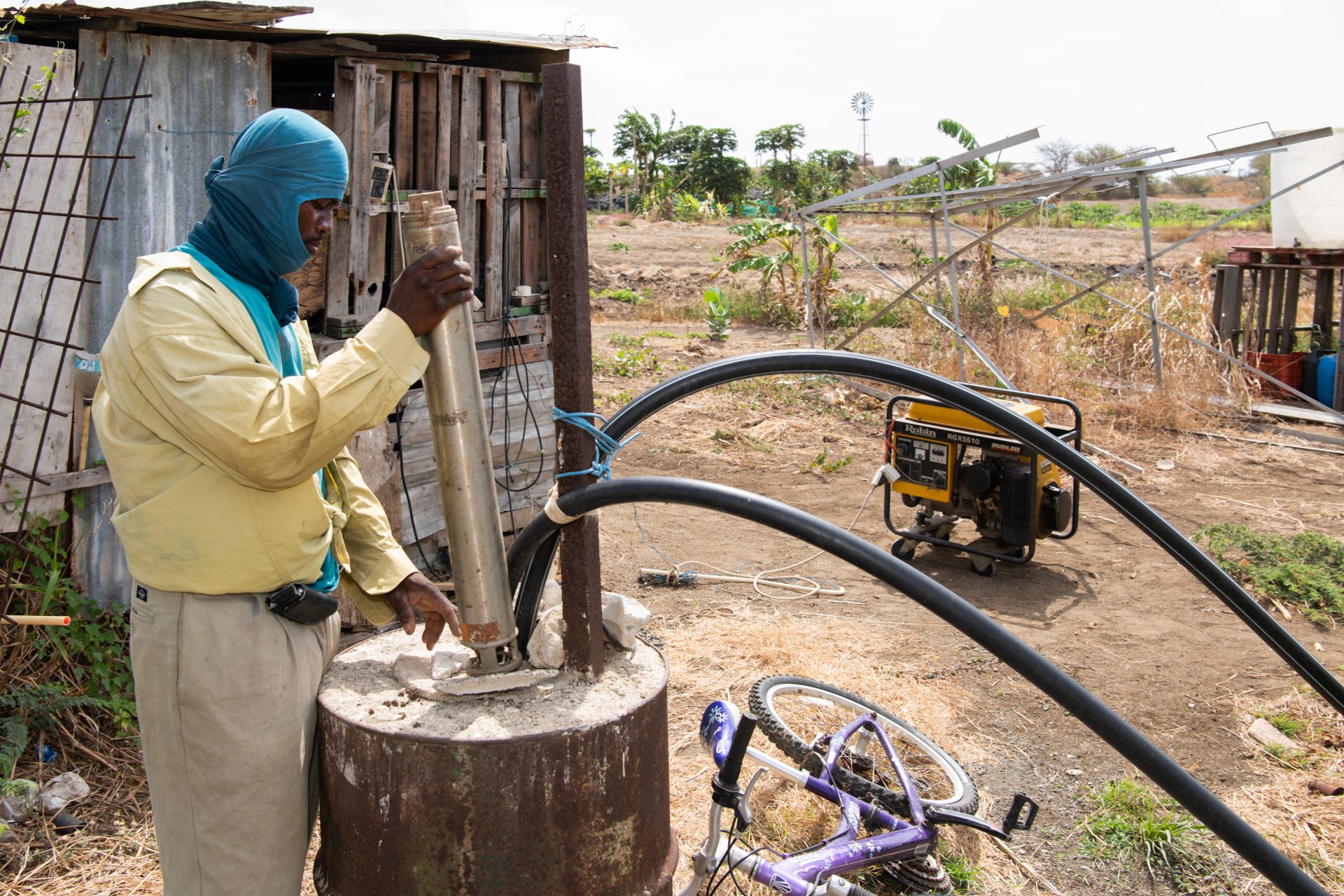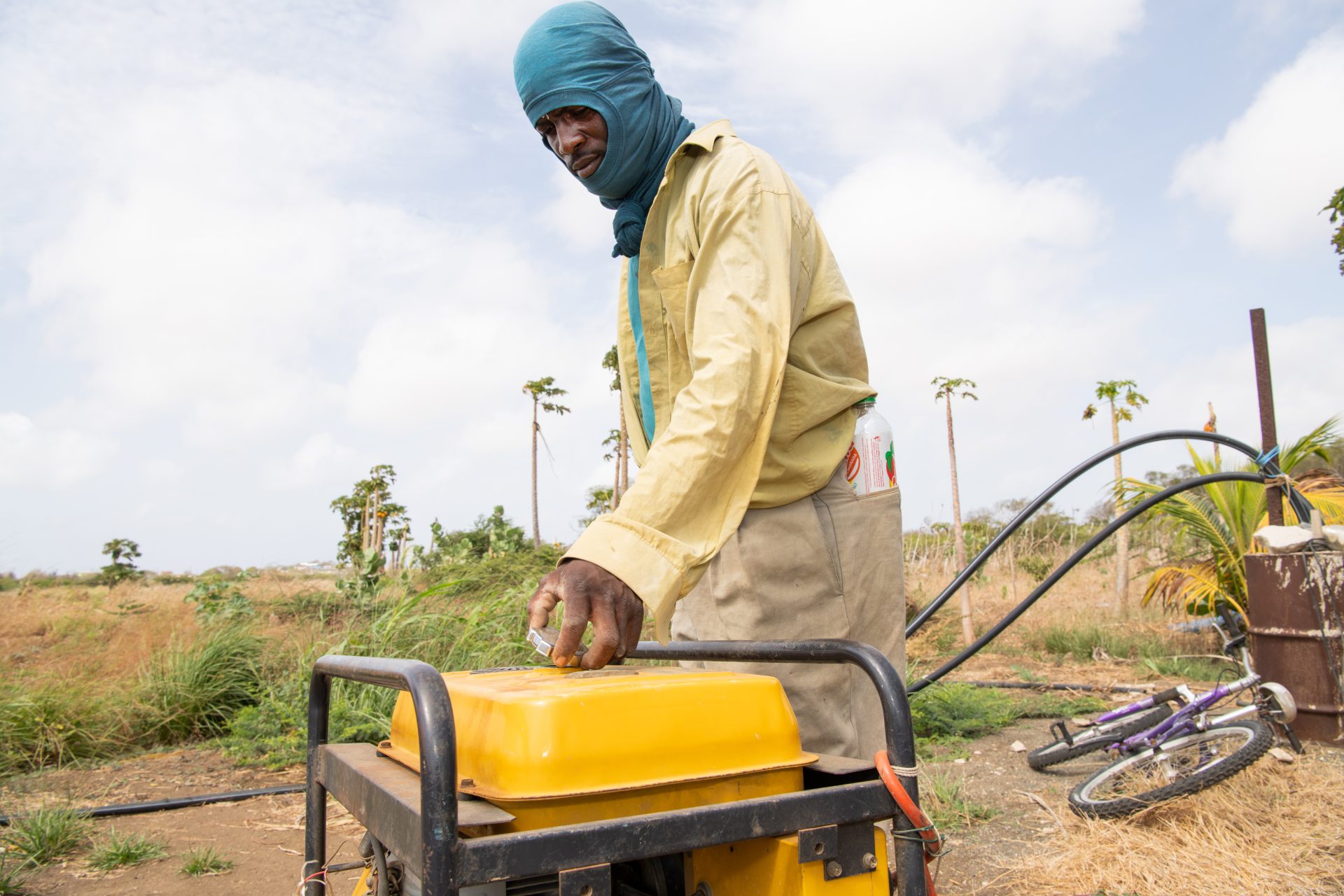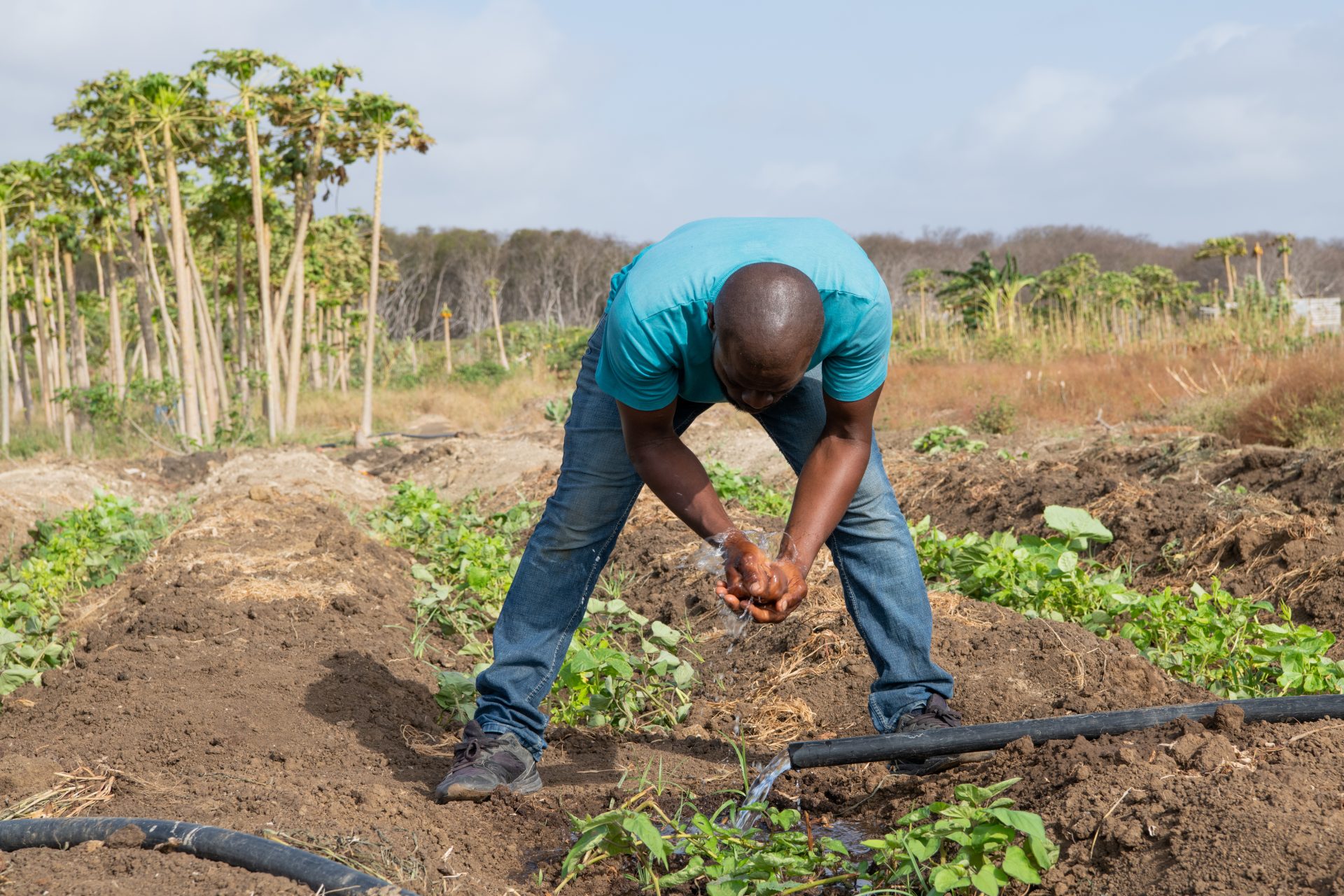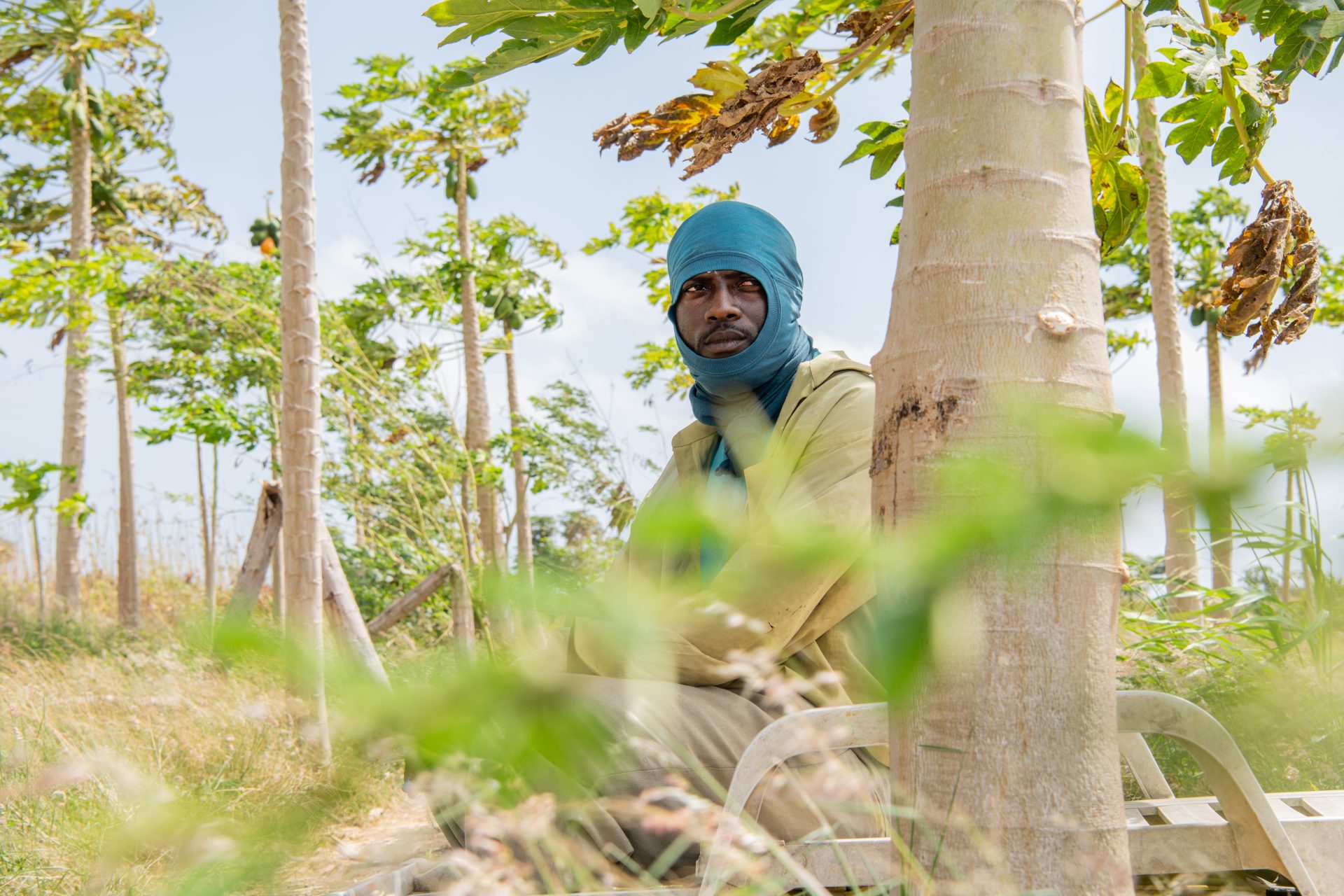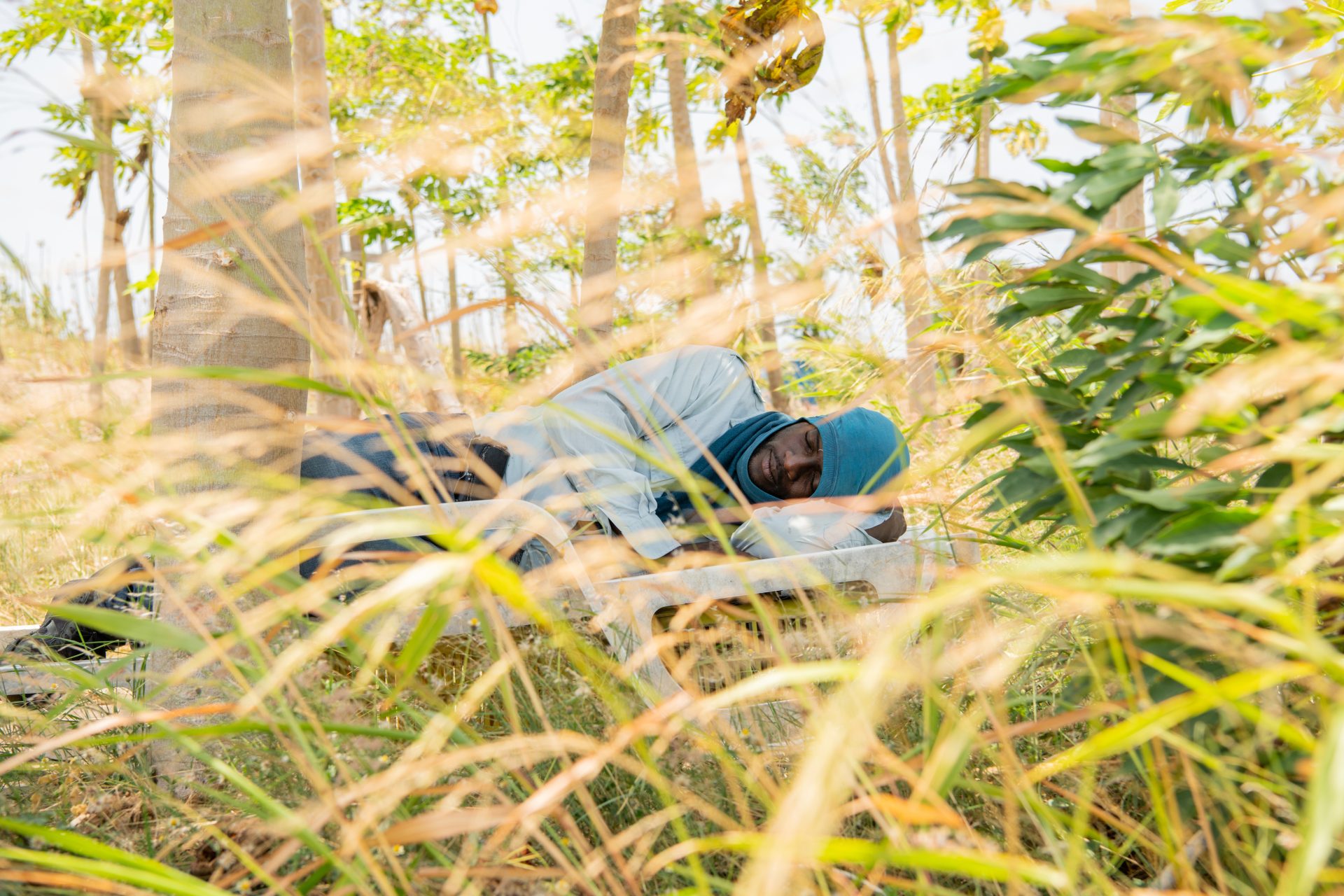From mondi to hòfi
Celestin estimates his plantation at about two hectares. In the year 2022, the land is cultivated with different kinds of vegetables and fruit trees. If you drive in from the high road, you will see from afar the papaya and coconut trees that rise above everything else. Very different from when Celestin and his wife Joselene decided to start the farm here. Back then there was nothing. It was all wilderness, all ‘mondi’. The ground was overgrown with weeds, wild shrubs, and trees. The abandoned and remote terrain was used to dump trash and to strip stolen cars.
In recent years, the two have used their magic to transform the mondi into a fertile hòfi. Every seed has been put in the ground by them, every stone of the house laid by themselves, and all the installations Celestin has built single-handedly. The two live with their two children in a house on the property. Right next to it is the fenced off yard with 52 goats and fifteen sheep. The animals get the leftover fruit and vegetables from the fields and contribute to the production of the farm with goat’s milk, lamb, and mutton. Two large water cisterns behind the shed are filled to the brim.
A few steps further you walk straight onto the plantation. Everywhere you hear the creaking and squeaking of the windmills that pump the water up from the wells. Behind the papaya-, coconut- and banana trees are the vast fields with vegetables and herbs. Here, on the open field in the bright sun and strong winds, tomatoes, cucumbers, sweet potato, ochre, eggplant, yucca, melon, and pumpkin are grown. Under a shadow mesh as protection against the bright sun, Celestin grows coriander, parsley, and other herbs. What was once an impassable mondi has thus grown into a natural pharmacy full of healthy and medicinal crops and herbs.
 English
English





